King's College London
Education research mphil/phd, key information.
The School of Education, Communication & Society welcomes applications for the PhD in Education Research. The MPhil/PhD programme offers the chance to undertake a piece of research that is worthy of publication and which makes an original contribution to your field of study. It was ranked 1st in London for research quality the Education Unit of Assessment in the latest Research Excellence Framework (REF).
We are looking for outstanding candidates to join a supportive and dynamic research community.
Students are supervised by staff in one or more of our three Research Centres:
Centre for Research in Education in Science, Technology, Engineering and Mathematics
Centre for Public Policy Research
Centre for Language Discourse and Communication
In addition to its world-leading academic contributions, the School has a proud history of contributing to public policy debates and the concerns of professional communities of practice across multiple sectors, both nationally and internationally. We provide programmes of study that lead doctoral students to the cutting edge of knowledge, and help education professionals critically analyse, research and effectively respond to changes in thinking and policy in their fields.
We recommend that prospective students read through the Research Centre webpages to find their preferred area of research and potential supervisor.

Course Detail
The School provides extensive research training and supervision on a range of themes including: curriculum, pedagogy and assessment; education management; school improvement; higher education; student & teacher identities; informal & workplace learning; inequality and social justice; the nature of professional expertise; the intellectual, emotional, social and spiritual aspects of personal experience and professional development; and the evolving practices and policy contexts of professional work.
There is a particular emphasis on rigorous interdisciplinary and critical perspectives with staff and students working in and across a range of disciplines.
We also run MPhil and PhD programmes in Interdisciplinary Policy Studies and Language, Discourse & Communication. We are home to a range of research projects, funded by research councils (ESRC and AHRC) and major charities (e.g. Wellcome, Leverhulme and Nuffield).
Information is current, but staff members can change .
Head of group/division
Professor Lulu Healy
- How to apply
- Fees or Funding
UK Tuition Fees 2023/24
Full time tuition fees: £6,540 per year
Part time tuition fees: £3,270 per year
International Tuition Fees 2023/24
Full time tuition fees: £24,360 per year
Part time tuition fees: £12,180 per year
UK Tuition Fees 2024/25
Full time tuition fees: £6,936 per year
Part time tuition fees: £3,468 per year
International Tuition Fees 2024/25
Full time tuition fees: £26,070 per year
Part time tuition fees: £13,035 per year
These tuition fees may be subject to additional increases in subsequent years of study, in line with King's terms and conditions.
- Study environment
Base campus

Waterloo Campus
Waterloo campus is home of the Florence Nightingale Faculty of Nursing & Midwifery and facilities for other faculties
Study Environment
The School is located on the Waterloo Campus right in the heart of London, next to London's South Bank Centre which includes the British Film Institute (BFI), Hayward Gallery, and the National Theatre. The Waterloo campus is home to the Franklin Wilkins library, with the Strand campus and the Maughan Library only a short walk away across the river.
The School offers a supportive, lively and outward-looking intellectual environment. There are plenty of opportunities for informal interaction and designated study rooms for doctoral students.
As part of a large multi-faculty institution, students also have the opportunity to build close ties across the College, as well as active cross-institutional links.
Postgraduate Training
Our extensive research training for MPhil/PhD students consists of an initial foundation programme which covers different approaches in the social sciences. It gives you a firm grounding in key social science theories and methodologies and invites students to grapple with experimental and innovative epistemologies.
You will be allocated two supervisors who will work with you throughout your studies. Students will also join one of our three research groups ( Centre for Language, Discourse and Communication ; Centre for Public Policy Research ; Centre for Research in Education in Science, Technology, Engineering and Mathematic s), all of which run a full programme of subject-specialist seminars. Many of these sessions are constructed around students' own research problems, and all of them provide extensive opportunities for students to learn from one another.
Students are also encouraged to participate in the training provided by the College's Centre for Doctoral Studies and the London Interdisciplinary Social Sciences Training Partnership (LISS-DTP) supported by the UK’s Economic and Social Research Council.
Student Destinations
The course provides a good grounding for an academic career, as well as personal enrichment and career enhancement opportunities for those already working in, or interested in moving into, education-related roles within the formal and informal learning sectors, local and central government, research and policy organisations, educational charities and NGOs.
- Entry requirements

Find a supervisor
Search through a list of available supervisors.
For more information regarding our courses please contact us using the details below

Accommodation
Discover your accommodation options and explore our residences.

Connect with a King’s Advisor
Want to know more about studying at King's? We're here to help.

Learning in London
King's is right in the heart of the capital.
- Students, Staff and Alumni
- Search Students, Staff and Alumni
- Course finder
- International
MPhil/PhD Education
Content navigation menu, why study mphil/phd education at goldsmiths.
We are committed to developing our postgraduate students into competent and critical educational researchers able to conduct rigorous and socially impactful research using a variety of methodological approaches.
- The Department of Educational Studies at Goldsmiths is recognised nationally and internationally for its innovative, original, and publicly relevant education research. We encourage research proposals in any of the areas in which the Department has expertise, subject to supervisor availability.
- The Department has about 40 home and international research students. Many of our research students are also practising professionals carrying out research related to their work. Students study either full-time or part-time.
- Students become members of the and they're encouraged to contribute along with staff and other visiting scholars to their seminar series and to the Department’s rich research culture. Additional facilities for research students are provided by the Goldsmiths Graduate School .
- The Department also participates in two prestigious Doctoral Training Partnerships (please see the Funding section below).
Assessment is by thesis and viva voce.
Have a look at our student profiles and their research topics .
Contact the department
If you have specific questions about the degree, contact Dr Vally Lytra .
3-4 years full-time or 4-6 years part-time
Entry requirements
You should normally have (or expect to be awarded) a taught Masters in a relevant subject area. You might also be considered if you aren’t a graduate or your degree is in an unrelated field, but have relevant experience and can show that you have the ability to work at postgraduate level.
Home - full-time: £4786 Home - part-time: £2393 International - full-time: £17690
Educational Studies
You'll research
We are particularly interested to hear from those who would like to work within areas such as:
- Art practice and learning
- Children’s literature and education
- Curriculum policy and practice
- Social justice and education
- Race, politics and education
- Progressive pedagogies
- Multilingualism
- Global education
- Education governance
- Education policy
- Early years education
- Comparative education
- Educational research ethics as situated practice
What our students say

Klaudia Matasovska
My PhD supervisors are well-established experts in their field and very supportive.
View profile

Jessica Boyd
I was aware of the forward-thinking, innovative and social justice focus that the university had.

Sam Holdstock
My PhD supervisors are knowledgeable, inspirational and supportive.
Programme aims
To help you:
- Identify appropriate issues of educational significance for your enquiry
- Select appropriate methods and methodologies by which to investigate these
- Appreciate the epistemological and technical assumptions that underpin this choice
- Design and execute a well-founded enquiry
- Analyse and interpret findings with accuracy, rigour, and originality
- Identify the practical and professional implications of educational enquiry
- Pursue doctoral training and development and achieve socially impactful research
- Build connections with postgraduate alumni working in HE as well as in a range of employment sectors
We ensure that you’re supported by highly qualified supervisors who you work with to a mutually agreed timetable and maintain regular tutorial contact throughout your research. An induction and research training programme is provided and you’re normally expected to follow this. There is an annual appraisal of your progress, and every effort is made to ensure good communication between yourself, your supervisors, and other relevant members of staff.
You’ll join a vibrant research community with many opportunities to lead and engage in work-in-progress seminars, research clusters, the annual postgraduate conference, create your own research communities, and get support for writing for publication.
You’ll have additional support from the Graduate School , where there’s a lively programme of interdisciplinary seminars, as well as core research training to support your studies. The Graduate School also has its own virtual research community, running in parallel to the physical School and providing online seminars and research training programmes.
All MPhil and PhD students and academic staff are invited to research seminars run by the Department’s three Research Centres: the Centre for Language, Culture and Learning (CLCL), the Centre for the Arts and Learning and the Centre for Identities and Social Justice . In addition to academics from inside and outside the University, research students also have an opportunity to contribute to seminars on work in progress.
In addition to the facilities available in the Graduate School, the Department has good facilities for research students including a study room, which looks out on to the College Green.
Take a virtual tour of the campus
You should normally have (or expect to be awarded) a taught Masters in a relevant subject area.
You might also be considered for some programmes if you aren’t a graduate or your degree is in an unrelated field, but have relevant experience and can show that you have the ability to work at postgraduate level.
International qualifications
We accept a wide range of international qualifications. Find out more about the qualifications we accept from around the world.
If English isn’t your first language, you will need an IELTS score (or equivalent English language qualification ) of 6.5 with a 6.5 in writing and no element lower than 6.0 to study this programme. If you need assistance with your English language, we offer a range of courses that can help prepare you for postgraduate-level study .
How to apply
Apply directly to Goldsmiths using our online application system
Before submitting your application you'll need to have:
- Details of your education history , including the dates of all exams/assessments
- The email address of your referee who we can request a reference from, or alternatively an electronic copy of your academic reference
- Contact details of a second referee
- A personal statement – this can either be uploaded as a Word Document or PDF, or completed online. Please see our guidance on writing a postgraduate statement
- An electronic copy of your educational transcript (this is particularly important if you have studied outside of the UK)
- Details of your research proposal (please also see below guidelines)
You'll be able to save your progress at any point and return to your application by logging in using your username/email and password.
Before you apply for a research programme, we advise you to have a look at the staff research interests to see if Educational Studies is the right department for you and whether a member of staff matches your research interests.
The University of London requires that students have two supervisors. Nominating supervisors in your application indicates that you have a good grasp of your research and helps us to direct your application to appropriate members of staff and in determining a good match between your research and the Department.
You should not contact supervisors directly . The Director of Postgraduate Research will contact supervisors after receipt of your application.
When to apply
We accept applications from October for students wanting to start the following January or September.
Selection process
Once you have submitted your application, it goes to Goldsmiths central admissions department and is subsequently sent out to the Department of Educational Studies for a first-pass review.
Successful candidates are invited to a remote interview. Unfortunately, due to the number of applications we receive, we are not able to offer feedback on unsuccessful applications.
If you have specific questions about the application process, contact Dr Vally Lytra, Director of Postgraduate Research, v.lytra(@gold.ac.uk) .
Find out more about applying for a research degree .
Guidelines for writing a research proposal
A good research proposal is required if you are interested in studying at MPhil or PhD level at Goldsmiths. It should indicate the topic that you are interested in and your experience and understanding of the area. The proposal forms a basis for discussion if you are interviewed and is important in helping us decide the supervisory support needed.
Whatever topic that you choose to research there will be a considerable investment of time and energy on your behalf. In view of this you need to consider carefully what you want to find out, whether the work is important to you and will sustain your interest and commitment over a number of years. Please also refer to our information on writing a research proposal.
The proposal should be between 1,500 and 2,000 words long. Although the exact form may vary according to what you intend to do, you should aim to include the following:
Title: This may only be a working title but it should clearly indicate the field of study and your research focus within it.
Introduction: This should outline the general field of study and why you regard researching a particular aspect of this to be important. It is helpful to indicate how your own experience has led you to the particular research questions that you are asking and why you think you are in a good position to carry out the research.
Main research questions: State clearly what you aim to find out. Try to make your research questions sufficiently focused so that they can be adequately addressed within the time and the resources that you have available.
Reviewing the literature: You need to show that you are aware of the main debates and issues relevant to your study. Key contributions in the literature should be cited and commented upon and the links with the work that you intend to do must be made explicit. Try to make clear what is already known in the immediate area and indicate how your work will add something new and distinctive to what already exists.
Methodology: You are asked to provide a brief overview of your intended research approach. For example, empirical research may draw on observation, interviews or document analysis that can be described qualitatively or quantitatively. Whichever approach you use it must be clear how any data or practice will help you answer your main research question. You need to show that you are aware of the different methods and analyses that you could use and provide a brief rationale for those most suited to your research. Indicate details such as where you will carry out your work, others who may be involved, over what period of time, and whether you will be able to obtain permissions or access needed.
Ethical issues: Briefly indicate any particular considerations that might arise regarding issues such as protecting your participants from harm, and respecting their autonomy and privacy.
Fees and funding
Annual tuition fees.
These are the PG fees for students starting their programme in the 2024/2025 academic year.
- Home - full-time: £4786
- Home - part-time: £2393
- International - full-time: £17690
If your fees are not listed here, please check our postgraduate fees guidance or contact the Fees Office , who can also advise you about how to pay your fees.
It’s not currently possible for international students to study part-time under a student visa. If you think you might be eligible to study part-time while being on another visa type, please contact our Admissions Team for more information.
If you are looking to pay your fees please see our guide to making a payment .
Funding opportunities
Esrc/senss studentships.
Fully-funded ESRC studentships are available via the South-East Network for Social Sciences (SeNSS) Doctoral Training Partnership (DTP), a consortium formed of 10 leading UK Universities, all of which are engaged in cutting-edge social science research and training.
A number of past and current students on this programme have been awarded SeNSS studentships.
For information about ESRC/SeNSS funding please, visit the ESRC studentships section .
AHRC/CHASE studentships
Fully-funded AHRC studentships are available via the Consortium for the Humanities and the Arts South-East England (CHASE) Doctoral Training Partnership (DTP), a consortium of nine leading UK institutions offering additional professional development opportunities including the enhancement of media skills and placements overseas or with arts organisations.
For information about AHRC/CHASE funding please, visit the AHRC studentships section .
Scholarships
Educational studies mphil/phd research bursaries.
The Department of Educational Studies in conjunction with its Research Centres is offering up to three PhD bursaries to prospective students with excellent proposals.
Additional costs
In addition to your tuition fees, you'll be responsible for any additional costs associated with your course, such as buying stationery and paying for photocopying. You can find out more about what you need to budget for on our study costs page .
There may also be specific additional costs associated with your programme. This can include things like paying for field trips or specialist materials for your assignments.
Teaser cards linking to other pages

Get our latest Postgraduate Guide

Book an Open Day
Similar programmes.
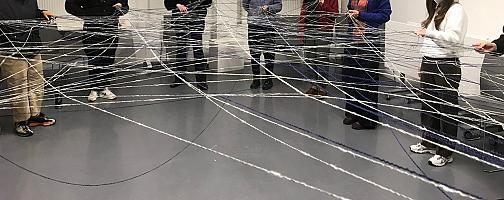
MA Arts & Learning
This programme gives artists, practitioners and educators the opportunity to enrich and consolidate theories of contemporary art and learning. Engage with practice and theory, develop innovative research approaches, and critically debate the changing nature of contemporary art.

MA Children's Literature
Expand your understanding of children’s and young adult literature by specialising as a researcher, creative writer, or children’s book illustrator with the MA Children’s Literature programme.
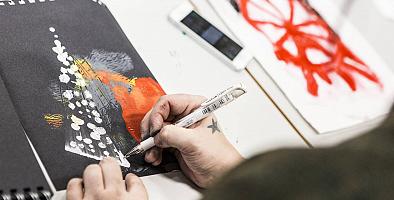
MA Children's Literature: Children's Book Illustration
Immerse yourself in the exploration of practical and professional approaches to children’s book illustration and writing for young children.
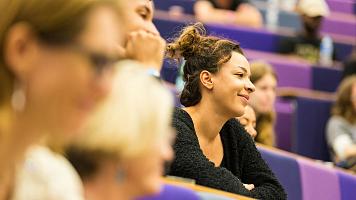
MA Creative Writing and Education
You might be a teacher who writes; a writer interested in education; a poet, a novelist or a short story writer. Whatever your background, this Masters will help you develop your creative writing skills and learn how to teach them.
Skip to main content
- Faculties and schools
- Services for business
- How to find us
- Undergraduate study
- Postgraduate study
- International students
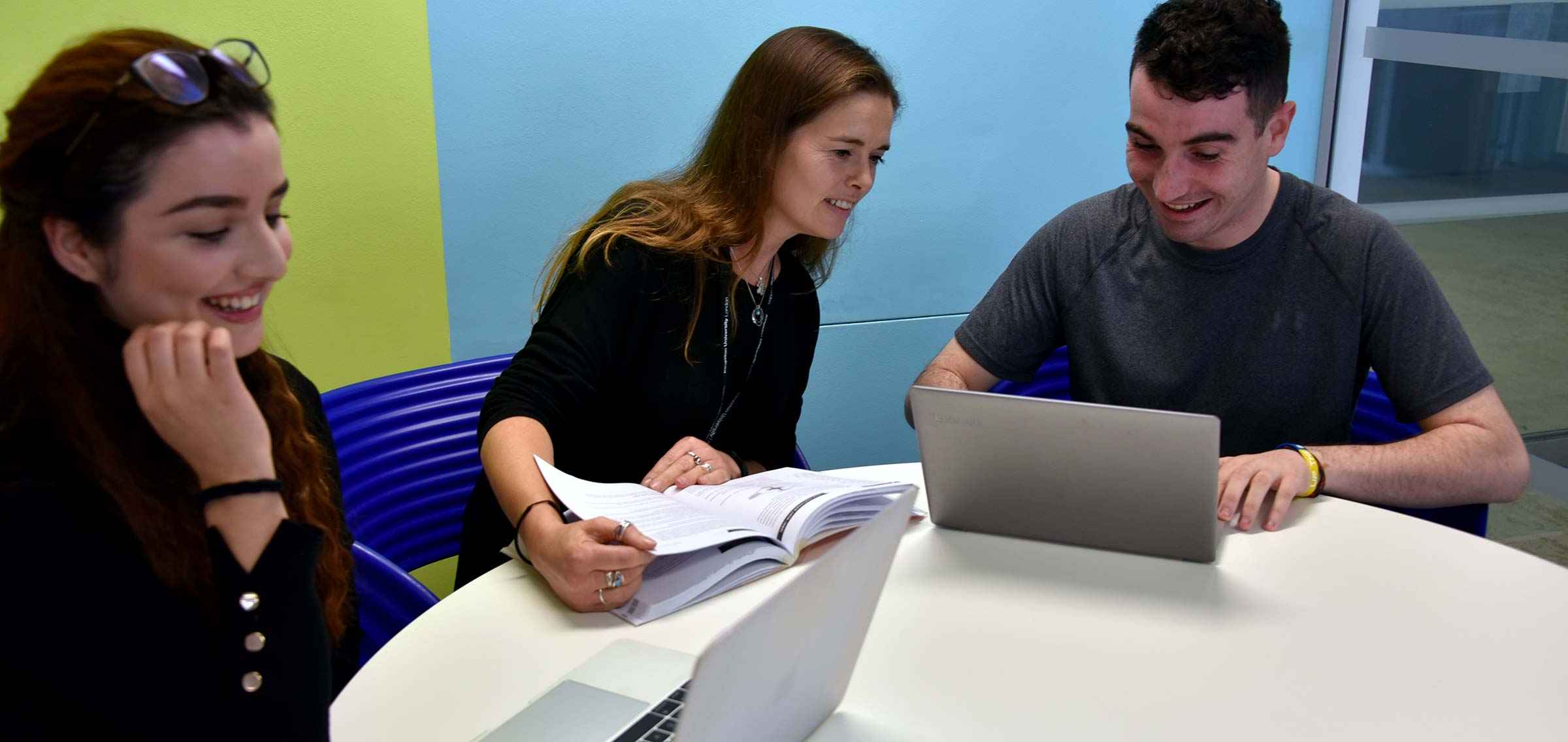
Home > Postgraduate study > Postgraduate courses > Doctor of Education (EdD)
Doctor of Education (EdD)
Why choose this course.
The EdD is a professional doctorate for education professionals in all fields and settings. If you are working as a teacher or manager in early years, school, college, university, health and social care, library, prison or a museum or heritage service, this course will enhance your career. It will help you extend your professional understanding and develop advanced skills for research, reflection and evaluation.
The course combines contextual modules, critical self-reflection and independent research. Modules address issues of education professionalism, inter-professionalism, policy and practice, the philosophy and practice of educational research, the design of a research proposal and a substantial professional-relevant research project.
Our academic staff have extensive experience of working with multi-agency partners, researching professionals at masters and doctoral level, and leading national and international research-active projects.
Find out more at our free online session:
"Is an Education Professional Doctorate (EdD) suitable for me?"
- Wednesday 11 September 2024, 5–5.45pm.
Book now for this free session >
| Mode | Duration | Start date |
|---|---|---|
| Part time | 6 years | January 2025 |
Taught phase of course: 2.5 years
Research phase of course: 1.5 – 3.5 years
Applications accepted: 1 February 2023 – 30 November 2024
Reasons to choose Kingston University
- We offer a supportive and flexible learning environment to help busy professionals balance work and study.
- We provide research facilities, research training opportunities, and research-active experienced supervisors from the wider Faculty of Health, Science, Social Care and Education.
- We have strong relationships with a number of multi-agency partners, providing students with extensive networking opportunities.
What our students say
It has given me a structure and a way to self-reflect on my learning and professional development as well as my personal development. I think it has been pivotal in my journey, improving my skills and confidence in teaching online.
Student, Doctor of Education (EdD)
I love how it has become part of 'my time' that includes reflection and learning, a fusion of personal and professional journey.
What you will study
The programme combines contextual modules with independent research. Issues are introduced, reconsidered and further developed in successive modules towards the research proposal, which is the ‘gateway' to the independent Research Project, the 'capstone' to the EdD. In the first two years, the programme contains taught modules which address issues of education professionalism, interprofessionalism, policy and practice, the philosophy and practice of educational research and the design of a research proposal. These modules will prepare you to carry out a substantial professional-relevant research project in the following years.
The learning experiences are delivered over weekends using a day conference format at the Kingston Hill campus of Kingston University London.
Final years
The focus in the first year is on concepts, principles and practice which define professionalism, professional identities and professional practice in education-related contexts, and policy and practice in education, all of which would be valued by education professionals. You are required to attend four full learning weekends (Saturday and Sunday) in February, April, June and September. You are expected to attend the EdD Conference Day in November. The learning weekends are designed to provide face-to-face sessions (seminars and workshops) for each of the two modules offered in the first year.
The EdD Conference, which marks the end of the learning year, is not compulsory for first-year students, but is recommended as an excellent opportunity to meet students from other years and active researchers and learn from their experiences.
Core modules
Education professionals as knowledgeable doers.
This module will bring together students from a wide variety of educational contexts and provide an opportunity to share and explore your own practice and professional knowledge and learn from others. The module will use face-to-face and technology enhanced methods to facilitate interprofessional learning and you will be facilitated to engage in and critically discuss the methods for exploring practice knowledge. The module will also explore and develop an advanced understanding of the concepts, principles and practice which define professionalism, professional identities and professional practice in education related contexts.
Policy transfer and analysis
This module will critically examine the local and global contextualisation of education policy and transfer alongside debates surrounding neoliberal perspectives. The content of this module is designed to integrate with elements of module one in cross-cutting themes to allow you to critically reflect upon the potential relationship of the education professional to policy. By examining the broader context of policy development and engaging in discussion from a range of disciplinary and multidisciplinary perspectives, with education providing the loci of study, you will critically examine the usefulness of overarching ideas. Focussing more specifically upon self-selected policy-related texts which are relevant to your role and setting, you will critically analyse their formation and implementation by applying advanced methodological approaches in order to reflect upon and examine your role and responsibilities as an education professional in relation to policy.
The focus in the second year is on theories of knowledge and research methods for educational and social research, and critical examination of ethical and practical issues in a context of professional practice which will support the development of a research proposal relevant to your professional role and setting. The development of the research proposal starts after the completion of the third module in Year 2 and can be continued and completed in Year 3. The research proposal is necessary to ensure your readiness for the Research Project.
In this second year, you are required to attend two full learning weekends (Saturday and Sunday) in February and April for the "Knowledge and Practice in Educational Settings" module, two Saturday learning events in July and September for "The Research Proposal" module, and the Conference Day in November.
Knowledge and practice in educational settings
In this module, you will critically examine theories of knowledge in educational and social research and their ontological, epistemological and methodological basis, and relate them to the field of study and particular research interests in which you are working. Through engaging in a dialogic mode of learning and critical reflection, critical examination of the relationships between language, knowledge, power and argument, you will consider the contested nature of knowledge and practice, how and why people do research, and how research relates to your profession. Through using face-to-face and technology-enhanced methods, you will critically examine philosophies that bring meaning to what constitutes education and theories of knowledge production, particularly relevant to educational research and practice context. The module, building on what you learnt from the previous two modules, will help you to develop a rationale of your position and what you want to find out. It will equip you with knowledge and skills to design, analyse, conduct and critically evaluate research and prepare you to develop the working methodology and research design for your professional doctoral research proposal in the next module.
Research proposal (Start in Year 2 and continue in Year 3)
Shared over Year 2 and 3: 60 credits
This module requires the development of a research proposal and forms the transition point between the taught modules and the Research Project. It is a requirement that students pass all modules, including the Research Proposal, before proceeding to the Research Project.
Drawing upon subject knowledge acquired during your studies in the modules prior to the Research Proposal, you will apply your understanding of epistemological, methodological and research design principles. Critical examination of ethical and practical issues in a context of professional practice will support the development of sharply-focussed research questions relevant to your professional role and setting. Successful completion of this module will ensure that you are enabled to undertake the professionally-relevant and academically advanced applied educational research requisite for contributing to new knowledge to your professional field.
In Year 3, the focus is on the completion of the research proposal and the preparation for undertaking your independent research; a substantial piece of professionally relevant and focused original research.
In the third year, you are required to attend Saturday events only taking place in February, April, July and September and the Conference Day in November. All events focus on providing opportunities for presentations and discussions of your research proposal, or work in progress on your research project, in a friendly and safe environment and getting useful feedback from peers and tutors.
Research project
210 credits
Guided by the content of the research proposal, this module encompasses all activities concerned with the generation of the research project constituting the third and final stage of the programme. It is not a taught module like the previous four, but it comprises opportunities for peer-support, mutual critique, self-critique, and personal support through a supervision programme. The module enables you to undertake a substantial piece of professionally relevant and focused original research and helps you to generate new knowledge that you will be able to disseminate to make an impact on professional practice. As this module constitutes the research project phase of a doctoral programme, you will be overseen by the Faculty Research Degrees Committee (FRDC) and have access to all available support offered for researchers within the Faculty.
In Year 4 and the following years, you will engage with activities concerned with the generation and completion of the research project. Using opportunities for peer-support, mutual critique, self-critique, and personal support through a supervision programme, you will learn and become able to conduct research, generate new knowledge and disseminate that knowledge to make an impact on professional practice.
In each of the final years, you are required to attend a minimum of three Saturday events, including the conference and are expected to present and discuss your work in progress with your peers and tutors. Your thesis will be submitted between years 4 to 6.
Entry requirements
Typical offer.
The normal entry requirements are a masters degree in Education (180 M level credits), or a discipline allied to Education.
Please note: Most students from countries outside the European Union/European Economic Area and classified as overseas fee paying, are not eligible to apply for part-time courses due to UK student visa regulations. For information on exceptions please visit the UKCISA website or email our CAS and Visa Compliance team .
Additional requirements
Candidates are expected to be currently in professional practice, but those who are not and are able to demonstrate appropriate and significant experience, may also be considered. Education professionals may make applications at any stage of their professional career.
Candidates are expected to demonstrate the potential to study at level 8, a commitment to professional learning in an education-related context, and an ability to work collaboratively in exploring and developing ideas.
You will need to submit a 2000 word statement of the proposed research project with your application, guidance is available on the apply for this course page.
If your first language is not English, you need to demonstrate a good standard of written and spoken English and have an IELTS score of 7 overall and not less than 6 in any section, as detailed in Kingston University's admissions regulations.
Prior learning achieved on programmes at other recognised higher education institutions may be accredited in exceptional circumstances; viz. where there are satisfactorily completed doctoral-level modules with comparable content and credit values to the modules for which exemption is sought. Requests for recognition of prior and/or experiential learning are documented under the categories: Certificated Prior Learning, Formal Learning which has not been assessed and Experiential Learning. All prior certificated learning requires the presentation of relevant certificates and/or confirmation from the award-bearing body and experiential learning requires verification. Guidance is provided to applicants to complete the university form H1 ‘Student request for recognition of prior and/or experiential learning'. Specifically, requests can be made for Recognition of Prior Certificated Learning (RPCL) and Recognition of Prior Experiential Learning (RPEL).
Teaching and assessment
The learning, teaching and assessment principles are designed to facilitate the process of researching professional practice by enabling you to share with your peers, in dialogue and reflection, problems and issues that warrant contextualised empirical enquiry. Critical support is provided by tutors and peers at seminars, workshops and lectures in the exploration of professionally relevant concepts to illuminate workplace challenges. Learning experiences are designed to enable discussion, dialogue and argumentation so that genuine collaborative learning can facilitate processes of enquiry and professionally-oriented knowledge production.
Guided independent study (self-managed time)
When not attending timetabled sessions, you will be expected to continue learning independently through self-study. This typically will involve reading journal articles and books, working on individual and group projects, undertaking and preparing coursework assignments and presentations, and preparing for exams. Your independent learning is supported by a range of excellent facilities including online resources, the library and CANVAS – the online virtual learning platform.
Support for postgraduate students
As a student at Kingston University, we will make sure you have access to appropriate advice regarding your academic development. You will also be able to use the University's support services .
Your workload
- Year 1: 10% of your time is spent in timetabled learning and teaching activity.
- Year 2: 9% of your time is spent in timetabled learning and teaching activity.
- Year 3: 6% of your time is spent in timetabled learning and teaching activity.
- Year 4+: 5% of your time is spent in timetabled learning and teaching activity in each year after Year 4.
Contact hours may vary depending on your modules.
How you will be assessed
Assessment comprises written assignments (essays), oral presentation, a written doctoral thesis and a viva voce oral examination.
The approximate percentage for how you will be assessed on this course is as follows:
- Year 1: 100% coursework (two written assignments)
- Year 2: 100% coursework (one written assignment and one oral presentation – the oral presentation might take place at the beginning of Year 3)
- Years 4-6: 100% coursework (a written thesis and a viva voce oral examination anytime between years 4-6).
Feedback summary
We feed back commentaries on drafts for summative module assignments to prompt reflection and revision or refinement of argument, perspective, exemplars, etc. We also provide constructive feedback, verbal and written, for formative tasks to inform and feed-forward to your summative assessment. During taught sessions, work in progress seminars allow you to articulate, discuss and critically examine your developing understanding, contributing to one another's learning. As autonomous learners, you are also encouraged to reflect on your own learning and to maintain a reflective journal from the onset of the course in order to identify specific action points which support your progress.
Class sizes
To give you an indication of class sizes, this course normally enrols 10 students and lecture sizes are normally 10-20. However, this can vary by module and academic year.
Who teaches this course?
This course is delivered jointly by the Schools of Education, Midwifery and Social Work, and Nursing of the Faculty of Health, Science, Social Care and Education. Experienced and research-active academic staff from the Faculty comprise the EdD team for the core teaching and supervision. The EdD team is keen to support you, the student, undertaking doctoral research into professional practice to successful completion. The Faculty is committed to developing learning opportunities for professionals regionally and nationally. All calendar years are enriched by the use of the wider research community within the Faculty and the University as an additional context to your learning. Throughout the course, you are encouraged to attend Faculty research seminars and conferences, Graduate Research School training events, library workshops, and to make full use of opportunities to network within the context of the University's research strategy. Some of these events may be scheduled during the weekday and others may be available in the evening.

Dr Christos Dimitriadis
Course director.

Dr Paty Paliokosta
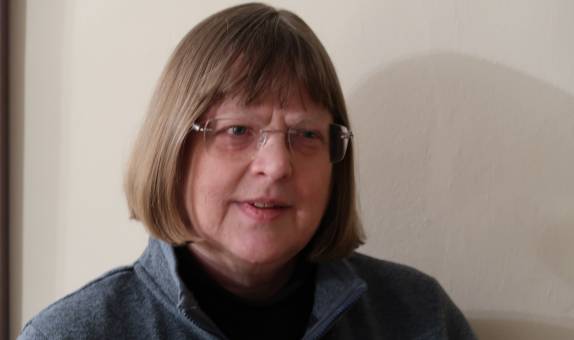
Dr Ruth Wood
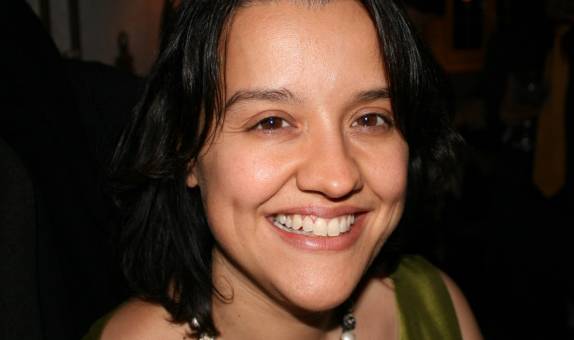
Dr Melania Calestani
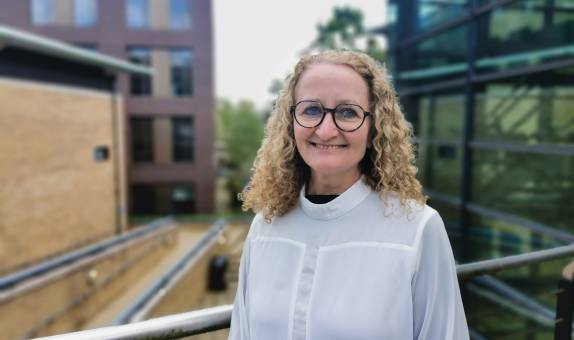
Professor Katherine Curtis
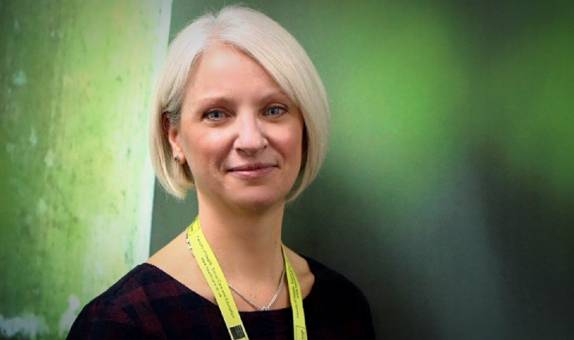
Dr Lindsay Gillman
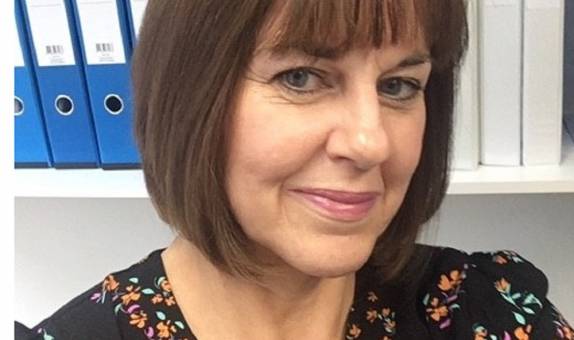
Dr Daryl Maisey
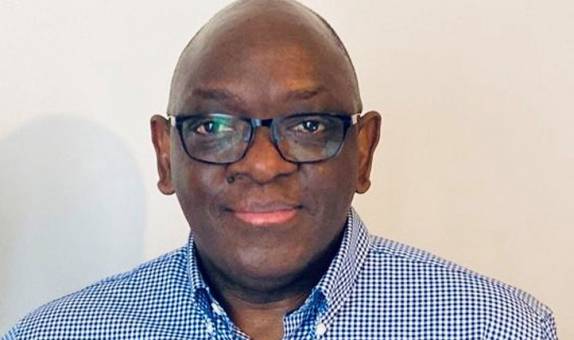
Professor Wilson Muleya
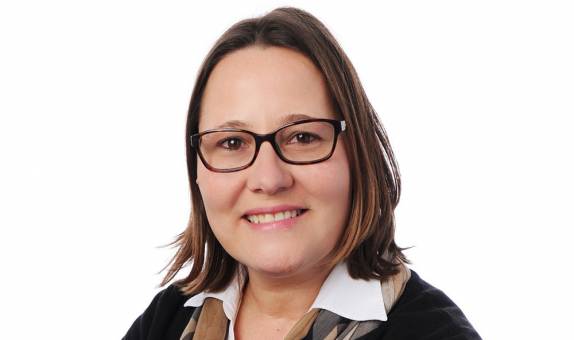
Professor Ann Ooms

Mr Amit Puni
Facilities at kingston hill.
There is a wide range of facilities at our Kingston Hill campus, where this course is based.
Kingston Hill is a leafy, hillside campus situated about three miles away from Kingston town centre. It is a quiet, secure place to study with easy access to London, meaning it provides the best of all worlds for our students.
Find out more about the Kingston Hill campus in the virtual tour .
One of the highlights of the Kingston Hill campus is the modern library, called the Nightingale Centre after Florence Nightingale, who was a regular visitor to Kingston Hill.
The library provides a spacious and attractive place for students to meet and study and features a cafe, more PCs and zoned study areas. Long opening hours give you plenty of access to specialist education books, journals and online resources.
Find out more about the Nightingale Centre in the virtual tour .
Computer and online facilities
There are many computers (PCs and Macs) available for you to use across the Kingston Hill campus when you need a place to study. Access to the wireless network across the campus means you can also work from your laptop or mobile device.
Using IT to support your studies is crucial. Kingston has an innovative virtual learning environment called Canvas. This allows you to access course materials and contact fellow students and staff while away from the campus.
Course fees and funding
2025/26 fees for this course.
- Doctor Part time Home fee TBC, subject to Research Councils UK publication
International
- Doctor Part time International fee £8,650
2024/25 fees for this course
Home 2024/25.
- Doctor part time £2,393
International 2024/25
- Doctor part time £8,300
Additional costs
Depending on the programme of study, there may be extra costs which are not covered by tuition fees, which students will need to consider when planning their studies.
Tuition fees cover the cost of your teaching, assessment and operating University facilities such as the library, IT equipment and other support services. Accommodation and living costs are not included in our fees.
Where a course has additional expenses, we make every effort to highlight them. These may include optional field trips, materials (e.g. art, design, engineering), security checks such as DBS, uniforms, specialist clothing or professional memberships.
Our libraries are a valuable resource with an extensive collection of books and journals as well as first-class facilities and IT equipment. You may prefer to, or be required to, buy your own copy of key textbooks.
Computer equipment
There are open-access networked computers available across the University, plus laptops available to loan . You may find it useful to have your own PC, laptop or tablet which you can use around campus and in halls of residences. Free WiFi is available on each of the campuses.
In the majority of cases coursework can be submitted online. There may be instances when you will be required to submit work in a printed format. Printing and photocopying costs are not included in your tuition fees.
Travel costs are not included but we do have a free bus service which links the campuses and halls of residence.
As well as tuition fee loans, there are a range of student funding options available to help you fund your postgraduate studies, including the following:
- Doctoral Loans are available to UK nationals and UK residents from Student Finance England.
- Partial or complete funding for EdD students may be possible from your employer.
- For a comprehensive list of the funding opportunities available at Kingston University, please visit the student funding options webpage .
Depending on the programme of study, there may be extra costs that are not covered by tuition fees which students will need to consider when planning their studies. Tuition fees cover the cost of your teaching, assessment and operating University facilities such as the library, access to shared IT equipment and other support services. Accommodation and living costs are not included in our fees.
Our libraries are a valuable resource with an extensive collection of books and journals as well as first-class facilities and IT equipment. You may prefer to buy your own copy of key textbooks, this can cost between £50 and £250 per year.
There are open-access networked computers available across the University, plus laptops available to loan . You may find it useful to have your own PC, laptop or tablet which you can use around campus and in halls of residence. Free WiFi is available on each of the campuses. You may wish to purchase your own computer, which can cost from £100 to £3,000 depending on your course requirements.
Photocopying and printing
In the majority of cases written coursework can be submitted online. There may be instances when you will be required to submit work in a printed format. Printing, binding and photocopying costs are not included in your tuition fees, this may cost up to £100 per year.
Travel costs are not included in your tuition fees but we do have a free intersite bus service which links the campuses, Surbiton train station, Kingston upon Thames train station, Norbiton train station and halls of residence.
After you graduate
As a researching professional in this programme, you will develop professional links and connections between research and education-related settings. Through researching critical questions and looking for answers to fundamental educational and social issues, you will deepen and enhance your employability skills to advance your existing career or develop a new one in an area of growing importance in modern society.
Course changes and regulations
The information on this page reflects the currently intended course structure and module details. To improve your student experience and the quality of your degree, we may review and change the material information of this course. Course changes explained .
Programme Specifications for the course are published ahead of each academic year.
Regulations governing this course can be found on our website.
Related courses
- Fees and funding
- Accommodation
- Open Events
- Work placement
- Study resources
- Student support
- Choose Kingston
- Disability and mental health support
- Website accessibility
- Website feedback
- Freedom of Information
- Wider Information Set
- Privacy Notice
- Charitable status
Kingston University , Holmwood House, Grove Crescent, Kingston upon Thames KT1 2EE . Tel: +44 (0)20 8417 9000
- Staff intranet
- Student intranet

Visit to apply
Education PhD
Key information, find a supervisor.
Mode of study
3 years full-time
6 years part-time
International £21,260
Entry requirements
Research profile
Browse the work of subject-relevant research groups.
You can explore our campus and facilities for yourself by taking our virtual tour .
Our researchers create knowledge and advance understanding, and equip versatile doctoral researchers with the confidence to apply what they have learnt for the benefit of society. Find out more about working with the Supervisory Team .
You are welcome to approach your potential supervisor directly to discuss your research interests. Search for expert supervisors for your chosen field of research.
While we welcome applications from students with a clear direction for their research, we can also provide you with some ideas. Search for PhD topics for your chosen field of research.
Research journey
This course can be studied undefined undefined, starting in undefined.
Find out about what progress might look like at each stage of study here: Research degree progress structure.
Research support
Careers and your future.
You will receive tailored careers support during your PhD and for up to three years after you complete your research at Brunel. We encourage you to actively engage in career planning and managing your personal development right from the start of your research, even (or perhaps especially) if you don't yet have a career path in mind. Our careers provision includes online information and advice, one-to-one consultations and a range of events and workshops. The Professional Development Centre runs a varied programme of careers events throughout the academic year. These include industry insight sessions, recruitment fairs, employer pop-ups and skills workshops.
In addition, where available, you may be able to undertake some paid work as we recognise that teaching and learning support duties represent an important professional and career development opportunity.
Find out more.
UK entry requirements
The general University entrance requirement for registration for a research degree is normally a First or Upper Second Class Honours degree (1st or 2:1).
An interview will be required as part of the admissions process and will be conducted by at least two academic staff members remotely via MS Teams, Zoom, or face to face.
Applicants will be required to submit a personal statement and a research statement. Please contact your proposed supervisor, where possible, to receive feedback and guidance on your research statement before submitting it. Learn how to prepare a research statement here .
EU and International entry requirements
If you require a Tier 4 visa to study in the UK, you must prove knowledge of the English language so that we can issue you a Certificate of Acceptance for Study (CAS). To do this, you will need an IELTS for UKVI or Trinity SELT test pass gained from a test centre approved by UK Visas and Immigration (UKVI) and on the Secure English Language Testing (SELT) list . This must have been taken and passed within two years from the date the CAS is made.
English language requirements
- IELTS: 6.5 (min 6 in all areas)
- Pearson: 59 (59 in all subscores)
- BrunELT : 63% (min 58% in all areas)
- TOEFL: 90 (min 20 in all)
You can find out more about the qualifications we accept on our English Language Requirements page.
Should you wish to take a pre-sessional English course to improve your English prior to starting your degree course, you must sit the test at an approved SELT provider for the same reason. We offer our own BrunELT English test and have pre-sessional English language courses for students who do not meet requirements or who wish to improve their English. You can find out more information on English courses and test options through our Brunel Language Centre .
Please check our Admissions pages for more information on other factors we use to assess applicants. This information is for guidance only and each application is assessed on a case-by-case basis. Entry requirements are subject to review, and may change.
Fees and funding
2024/5 entry, international.
£21,260 full-time
£10,630 part-time
£4,786 full-time
£2,393 part-time
Fees quoted are per year and are subject to an annual increase.
Some courses incur additional course related costs . You can also check our on-campus accommodation costs for more information on living expenses.
Brunel offers a number of funding options to research students that help cover the cost of their tuition fees, contribute to living expenses or both. Recently the UK Government made available the Doctoral Student Loans of up to £25,000 for UK and EU students and there is some funding available through the Research Councils. Many of our international students benefit from funding provided by their governments or employers. Brunel alumni enjoy tuition fee discounts of 15%.
Scholarships and bursaries
- Brunel Graduate Discount
Study with us
EdD Doctorate in Education

The Doctorate in Education (EdD) is an innovative programme designed for professionals in education and related areas who want to extend and deepen their knowledge and understanding of contemporary educational issues.
The EdD is a prestigious qualification that demonstrates skill in applied research and strong professional development. Successful candidates are awarded the degree of Doctor of Education and are entitled to use the title ‘Dr’.
The EdD is characterised by a professional orientation and a supportive structure. It aims to develop skills in educational research and enquiry and to use these in order to carry out research that will contribute to professional knowledge and practice. A growing number of professionals regard this style of doctoral programme as being a more appropriate vehicle for their further development than the traditional PhD.
The programme involves four years of part-time study, in two stages:
Stage 1 (Years 1 and 2)
This comprises the ‘taught’ component of the programme which will equip you with the skills and knowledge to support your engagement with the research and the practice field in which your project is located. This phase will involve you studying online modules on topics including: the context of education or health and social care research, literature reviewing, ethics, the principles of research design, and methods of data collection and analysis. Stage 1 is assessed through the submission of formative and summative assignments which focus on developing your literature review, refining your research questions and your proposal for research.
Stage 2 (Years 3 and 4)
Students who successfully complete Stage 1 will progress to Stage 2 - the ‘research’ component of the programme. During this time you will carry out your study and work towards completing your thesis. The research stage has a structured schedule of submission of assignments which will pace you through ‘work in progress’ pieces and provide regular opportunities for feedback on your progress.
In both stages (1&2) you will be supported through online seminar discussions and annual residential weekends at the OU’s campus in Milton Keynes. You will be allocated two supervisors – your main one in year 1 and a co-supervisor in year 2.
IET is responsible for the technology-enhanced learning (TEL) strand of the EdD programme. TEL students research a wide variety of areas. Examples include:
- Developing online teacher communities to support communication and collaboration
- Collaboration in online courses in Slovakia
- An investigation into the role of professional learning on the online teaching identities of higher education lecturers
- Developing digital historians in Italy
- On the Scope of Digital Vocabulary Trainers for Learning in Distance Education
How to Apply
Applications for PhD study with IET should be made through The Open University’s Faculty of Wellbeing, Education and Language Studies. Find out more information here .
CLEARING IS OPEN - Call us on 0800 923 8888
Search our site...
Search module, edd professional doctorate in education.
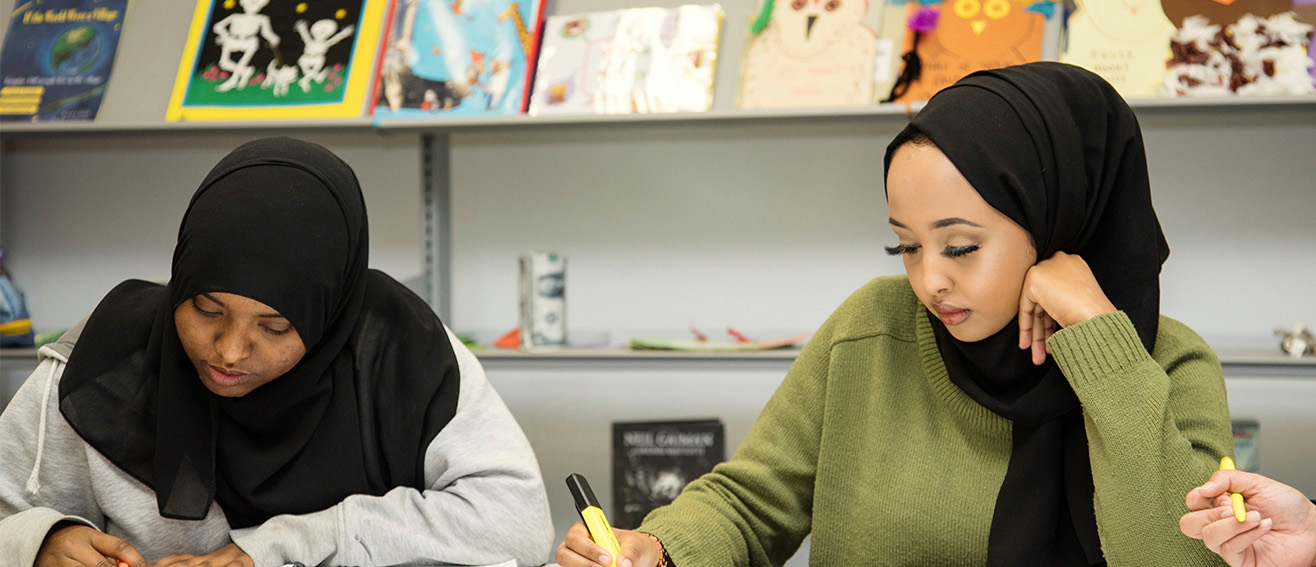
- Course finder
- Professional Doctorate in Education with specific focus on social justice and inclusion - EdD

- Entry Requirements
- Course Content
Teaching and Assessment
- --> Related Courses -->